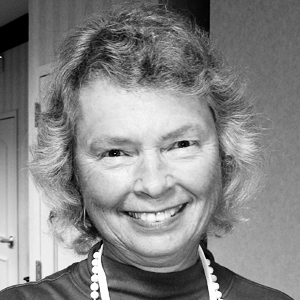Before I retired, I taught in the Biblical Studies department at Messiah College in Mechanicsburg, Pennsylvania. Each fall term, I was assigned two sections of a required 100-level course called Encountering the Bible. Each section had about 35 students, most of them having graduated from high school the previous spring. This was the first time many were living on their own in the dorm and had to set their own schedules. A few others had attended a local community college first, or had taken a gap year or two between high school and college to either earn money or do some kind of voluntary service.
What stood out to me in those first-year classes was the contrast between students (especially males) who came directly from high school and those who had taken even one extra year to do something different. Simply living one year longer gave them more maturity and motivation to do well. If they had worked at a boring or repetitive job and decided they wanted a better one, they attended class and did their work. If they had been in voluntary service, they had more of a sense of what they wanted to do in life, and how to get there. As one of my teaching colleagues once commented, "There are light-years of difference between high school grads and those who have taken even one gap year before coming to college."
This might be illustrated by a couple students I taught at different times. In my first year at Messiah, a young man named George was assigned to my class in Encountering the Bible. He did a very poor job, teetering on the edge of failure with a low D for his final grade.
The following fall, when I returned to my office, I was surprised to see George parked on the floor beside the door. "George! What are you doing here?"
"Well, I wanted to see if I could retake that Bible course with you. I was advised that the D would not look good on my record."
"And you want to take this course from me rather than another professor?"
"Yes." George signed up and seemed almost like a different person. His work was done on time and he was maintaining a B average. He attended class regularly, and now and then came in to visit me to ask how he was doing. Finally, I asked him what made the night-and-day difference. "Well," he said, "I’m reading the book."
"You’re reading the textbook?!" George went on to say that he had never read anything in high school and still could get by. He apparently assumed college would be the same.
I never forgot my encounter with George. What a difference it makes if you are mature enough to realize you actually have to read your assignments in college! But it was an expensive lesson to learn.
Another year I recall having a young man in one class who did not especially stand out, but both his attendance and work were irregular. Being more used to this problem, I was startled one day about halfway through the semester to receive a note from this student telling me he was dropping out of college. The note explained that he now realized he was not ready for college, and he actually apologized for taking up my time!
It was another expensive lesson in growing up, but at least this student wised up before he wasted an entire year.
As a result of my experience as a college professor, I encouraged my high-school-age grandson to consider a gap year. He had been a fairly good student taking several AP classes, but was not sure what area he wanted to focus on in college. This fall of 2016, he started a 10-month experience in Service Adventure, under Mennonite Mission Network. I will be very interested to see how this opportunity to participate in different areas of service will prepare him for his later college experience and his future.








